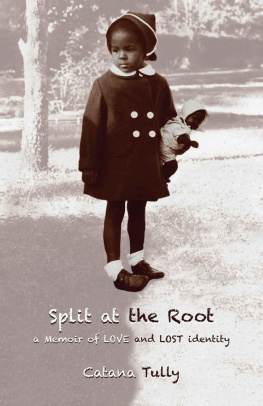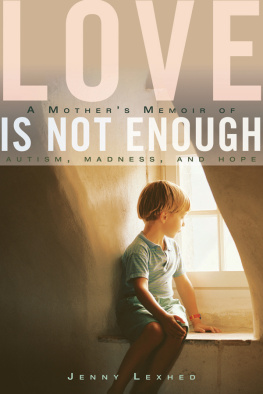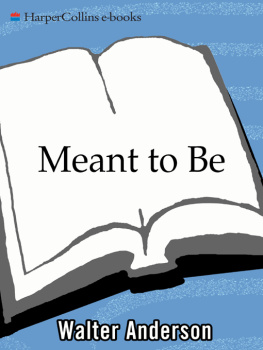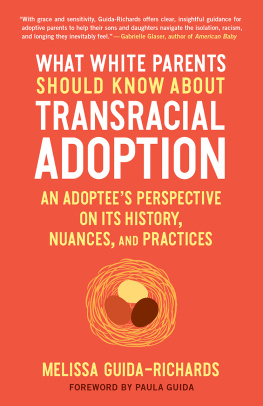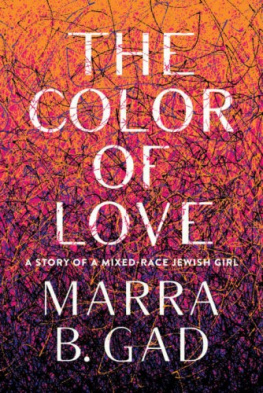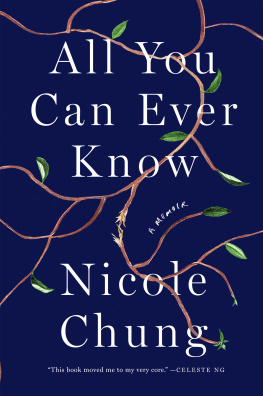Split at the Root:
A Memoir of Love and Lost Identity
Catana Tully
Completion Enterprises LLC
Sedona, AZ
Split at the Root is a work of nonfiction. Some names have been changed.
Copyright 2012, Completion Enterprises LLC. All rights reserved. No part of this book may be reproduced or transmitted in any form or by any means, electronic or mechanical, including photocopying, recording or by any information storage and retrieval system without permission in writing from the author.
Cover photography: Family archive
Image adapted by Brenda Steves
Published for the author by
Completion Enterprises LLC,
PO box 21482,
Sedona, AZ 86341
Printed in the United States of America
TABLE OF CONTENTS
Title Page
Copyright
About the Author
Dedication
Acknowledgements
Testimonials
Citation
Part One: The First Twenty Years
Part Two : The Next Fifteen Years
Part Three : Things Start to Unravel
Part Four : Confronting Confusion
Part Five : Gilbert E. Reed
Part Six : My Mothers Family
Part Seven : Sharing Treasures and Truths
Epilog ue: Autumn 201
About the Author
Dr. Catana Tully grew up trilingual (German, Spanish, English) in Guatemala where she attended elementary and middle school. In tenth grade she entered a boarding school in Jamaica, WI and received her Advanced Level Higher Schools Certificate from Cambridge University, England. Expecting to become an international interpreter, she continued her studies at the Sprachen und Dolmetscher Institut in Munich, Germany. However, she was called to work in a play and discovered her affinity for the dramatic arts. She became the actress and fashion model Catana Cayetano and appeared in Film and TV work in Germany, Austria, and Italy. In Munich she met and married the American actor Frederick V. Tully and ultimately moved to the United States. They have a son, Patrick. In Upstate New York, she completed the BA in Cultural Studies, an MA in Latin American and Caribbean Literature, and a DA (doctor of Arts) in Humanistic Studies. She held the position of tenured Associate Professor at SUNY Empire State College , from which she retired in 2003. She returned in 2005 for part time work in ESCs Center for International Programs, where she served as Mentor and instructor in the Lebanon program, and as Interim Program Director for the Dominican Republic. In 2011 she retired completely to dedicate herself to publishing Split at the Root. She is currently preparing an academic version discussing the psychological issues imbedded in the memoir.

Catana Tully, Autumn 2012
For Patrick
My story is his, too.
ACKNOWLEDGEMENTS
I am indebted to my beloved Fred, for his ever-present support in life, and for gifting me with my Black skin in death; to my son Patrick, whose wisdom, remarkable talent, and profound insights brighten my existence. Indebted to innumerable friends and colleagues who through the years have encouraged me to publish my story; indebted to Constance Morgan for the guidance that strengthened my backbone , and sharing with me the notes of our sessions; to Anita Bucherer Godeffroy for precious hours of intense, other-worldly discussions; to Tristine Rainer for her enduring friendship through the years, her wisdom, insight, and contagious optimism; to Marion Roach for her excellent writing suggestions, to Sandi Gelles-Cole for recommending I re-write the story chronologically; to Joyce Elliott Ph.D for assuring Reassignment time to write and re-write the manuscript, to Marjorie Lavin Ph.D, Marc Cirigliano Ph.D, and United University Professions for four Faculty Development Awards that supported my research.
TESTIMONIALS
Split at the Root is a portal to Catana Tullys exotic past and an absorbing account of her search for identity. She laces this journey of self-discovery with the suspense and mystery of a compelling detective novel. We turn the pages immersed in her story as she strives to uncover the truths of her past. We witness her struggle to reconcile her racial displacement with her multiple roots. We celebrate her ultimate embrace of her heritage. An engrossing and moving tale filled with psychological and social insight, this memoir shows us what it means to be whole and how that wholeness makes us fully human.
Richard Gotti, PhD, MFA
Professor and Psychotherapist
Praise for Split at the Root: A Memoir of Love and Lost Identity
This book shows us how precious and fragile ones sense of identity can be. For some people, questions about their sense of self, their family roots, and their place in society, never come up. There is an unspoken assurance that who they are and how others see them, and how they see themselves are right out there in the open for everyone to see. Split at the Root represents a gradual and then radical departure from that kind reassurance of self. Catana Tullys memoir is a wrenching, painful and necessary excavation for a woman of color who spent her formative years growing up as a younger daughter in a German-Guatemalan family. How Catana unearths the many sided truths of herself and her racial and cultural inheritance is the core of this moving narrative.
Beverly Ann Smirni
Associate Professor, Social Studies
Firstly, this is a riveting oral history, autobiography, detective story, as well as a family history and an individuals striving for knowledge, personal identity and closure. Catana Tully combined an impressionistic study of her natural environment with an impressive research effort to re-assemble her origins. The story resembles a palimpsest, a parchment that has been written on, partially erased, then written on again. While the German historian, von Ranke raised the bar of his profession by striving for Geschichte wie es eigentlich gewesen (history as it actually happened), Catana has arrived at a certitude that has allowed her to assert ownership over her own history and life. She has reached a very high plateau of historical understanding and re-creation while raising the bar for anyone who aspires to follow in her footsteps. The writer was actually uprooted from her birth family and, in a sense orphaned because the German family never shared their name with her through adoption; rather they colonized her mind and Mutti s/mothered her with a dutiful love aimed at producing a trophy child who could bring honor into her unfulfilled life. There may be no second acts in life, but Catana has empowered herself and others to compose an epilogue that captures the essence of their personal histories while raising the bar for this genre. Those who control the present control the past, and those who control the past control the future. When the German family expelled her birth family from her life, they erased Catana's memories to control her life. The guilt she felt about this reality was mostly sadness over being apparently abandoned by Rosa, her birth mother, and consequently encouraged to deny her own roots. However, she became the beneficiary of greater opportunities for worldly success, but also a victim (of captivity) and an accessory to a crime of rejecting/abandoning her origins. It explains why Mutti disapproved of the Haitian artists portrait: its colorfulness was too accurate a depiction of her genuine cultural roots. Catana's soulful re-creation of the first three years with Rosa was brilliant as was the excellent use she made of her multi-cultural heritage with her students in Albany.
Frank Rader, PhD
Professor, Historian
Catana Tullys book goes beyond narrating an unusual lifes story with a global backdrop. She explores issues of identity and cultural influences on a deeply personal level. The honesty and clear voice in her writing made this book a pleasure to read and an inspiration.
Next page
